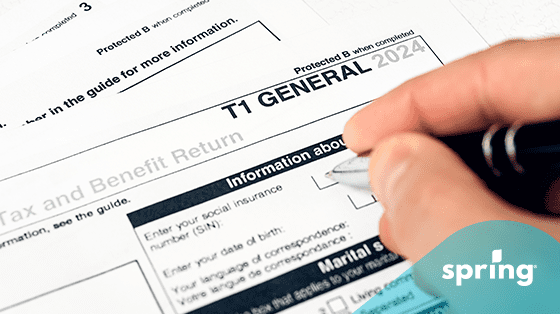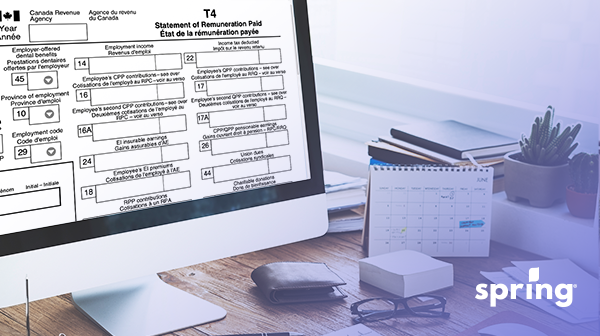However, within the Disability Support Program (DSP) in Nova Scotia is a wide variety of different programs. This allows more people to receive the funding that they need and have it tailored to their specific financial situation. However, if you’re disability is temporary and stops you from working, you may not qualify for this program and use other programs like Employment Insurance, which also provides Employment Support Services once you’re ready to return to work.
How to Apply For The Program
Applying for the DSP Program isn’t as simple as just filling out an application. This is because it will need to be determined which level of support is needed for you. You start by calling or visiting a community service office in Nova Scotia and letting them know that you want to apply for income assistance. They’re going to need to know about your life to assess your situation, so you should have your bank statements, SIN number and any other relevant documents with you.
Meeting With A Case Worker
Once you’ve finished your initial application, you’re going to set up a meeting with a case worker. This meeting is to determine your eligibility for income support as well as which programs you qualify for. The caseworker will need the following documents at this meeting:
- Driver’s License or photo ID
- Bank account statements
- SIN number
- Income tax assessment forms
- Copy of lease or mortgage agreement
Copies of these documents will need to be taken so you can keep the originals. Once the case worker has had time to go over everything, then they’ll contact you with their decision. If you qualify for the Disability Support Program, you’ll also get assigned a Care Coordinator who will conduct a functional assessment to determine your individual circumstances and what regular payments you qualify for.
The Final Decision
Once the worker has gone over the documents, you’ll either be approved or not. If you’re not approved, you’ll get a letter explaining the reasons for the decision in the mail from the Department of Community Services. This letter will explain. This doesn’t mean that you can’t reapply, though, or ask for a Decision Review.
If you are approved, you’ll start receiving payments to help with your personal expenses. You can get these with a cheque or through direct deposit. You will receive the funds faster, though, if you choose to go with direct deposit.
Nova Scotia DSP Eligibility Requirements
Before you apply for the DSP program, it’s important that you make sure you meet the eligibility requirements. That said, there are many different situations where you can apply, including just for emergency help. Here are the requirements that you need to meet.
- You must be a resident of Nova Scotia
- You must be 19 years of age or older (16 or 18 in certain situations)
- You must be in need of financial assistance
- You cannot find work or are unable to
These are just the standard requirements for income assistance. However, there are different situations that require different eligibility criteria.
Emergency Help
In the case of an emergency, your caseworker can help you get your funds faster. If this is the case, you should let them know right away. That said, only certain situations allow you to qualify for this. Some of these include having no food, being in danger of losing your home, or being in need of protection for your health and safety.
Under 19
There are certain conditions where you can qualify if you are between the ages of 16 and 18. These certain conditions include your home being unsafe to live in, you have no parents or guardians or have issues with your parent or guardians. However, in order to get approved, you do have to agree to go to school or training as well as live in a supervised home or apartment.
Other Information
When you’re looking to apply, it’s important to note that if you’re Aboriginal and live on a reserve, you won’t qualify. However, if you don’t live on a reserve, then you’re eligible. If you have a disability, then you may be asked to confirm it with a doctor’s note.
Programs Under the DSP
Since we’ve discussed the basics of the Disability Support Program and Income Assistance, it’s important to note that there are many different programs you can get approved for eligible individuals under the DSP program. All of these different programs are considered to be voluntary programs designed to provide support services for those with support needs.
Alternative Family Support Program
This program is just one of various programs and is designed to provide direct family support for those with disabilities who are in an approved, private home. Included in this program is also support and supervision for 2 people who aren’t related to the AFS provider. It’s meant for those who prefer and benefit from those who thrive better in a family-like setting.
The funding included in this program is used to pay for room and board, respite, supervision, and other things that are included in the AFS policy for eligible participants. You’d apply for this program when you apply for the Disability Support Program.
Independent Living Support
This is a different program from the Alternative Family Support Program. This program is meant for those who live on their own but need support. It provides funding for support services for service providers. The idea behind this particular program is to promote independence. It is also meant to help those build relationships with friends, family members and community members. It also helps those with physical disabilities and other long-term disabilities stay in their personal support network.
Another goal of this program is to help is to assist participants with their health and wellness and avoid the need, or delay, for a staffed residential support program. They’ll also help with daily activities such as:
- Laundry
- Shopping
- Maintaining a household
- Preparing meals
- Transportation
- Banking and paying utility bills
- Participating in activities
Direct Family Support for Children
Both the Direct Family Support for Children and the Enhanced Family Support for Children provide funding for those with children and help support them at home. This includes the cost of respite services to assist with breaks for those who are family caregivers. It’s also meant to maximize family support and community participation and avoid the need to be placed out of the home. The amount you receive depends on how many children you have that qualify.
However, there are some eligibility requirements that you need to meet before you apply for this program. These requirements include:
- Being a resident of Nova Scotia
- Being lawfully entitled to be in Canada
- Having a child under the age of 19
- Having a family net income that meets the requirements
The family of the child also has to be involved in the assessment process.
Another important aspect of approval is that the diagnosis has to fall within the requirements. These include:
- A mild to moderate intellectual disability that has significant behavioural challenges within 2 years
- Severe intellectual disabilities that has significant behavioural challenges within 2 years
- A significant physical disability that limits functions
Flex Program
The flex individualized funding program offers funding. It’s meant for those who live with family in a private family home or independently who have support for their families. The funding is meant to cover supports that are specific to the participant’s specific needs, promote their independence, and offer an alternative to a residential support option.
Standard Household Rate
This program helps those that need extra support to pay for their basic needs, there’s the standard household rate. However, how much you get is based on how many people are in your household. Here is a breakdown of the different monthly payment amounts. This is also the only program that has predetermined exact amounts.
| Number of Adults | Dependant Children | Rent/Own | Board | Essentials |
| 1 | 0 | $726 ($1,005) | $644 | $288 |
| 1 | 1 | $1,018 | $663 | $288 |
| 1 | 2 or more | $1,072 | $707 | $288 |
| 2 | 0 | $1,419 | $1,067 | $691 |
| 2 | 1 or more | $1,473 | $1,110 | $691 |
Resources You Can Access With This Program
On top of the financial benefits that you can get from this program, there are also resources that you can access. These resources include:
- Access to Adult Service Centres
- Protection for Persons in Care and Persons with Disabilities
- Wheelchair Recycling Programs
- Community ACCESS-Ability Program
There’s also a wide variety of resources on the Nova Scotia government website.
DSP Payment Dates
Some important information that you may need if you’re approved for the DSP program is the payment dates. These are the dates that the money will be direct deposited into your account or your cheque is sent in the mail. Here are the dates for 2026.
| Payment Month | Payment Dates |
| January 2026 | December 29, 30, 31 |
| February 2026 | January 28,29,30 |
| March 2026 | February 25,26,27 |
| April 2026 | March 27,30,31 |
| May 2026 | April 28,29,30 |
| June 2026 | May 27,28,29 |
| July 2026 | June 26,29,30 |
| August 2026 | July 29,30,31 |
| September 2026 | August 27,28,31 |
| October 2026 | September 25,28,29 |
| November 2026 | October 28,29,30 |
| December 2026 | November 26,27,30 |
| January 2027 | December 29,30,31 |
Nova Scotia Disability Tax Credit
If you’re diagnosed with a disability in Canada, you can qualify for something called the disability tax credit. This non-refundable tax credit is provided by the federal government and helps reduce the annual tax payments for those who have a severe and prolonged impairment or be the support person for someone who does. In order to qualify for this tax credit, you need a medical practitioner to verify that you have a prolonged or severe disability. This needs to be submitted along with your application form in order to verify your medical condition.
Once you’ve completed the application process and you’re approved for this tax credit, you are able to go back at least 10 years. This allows you to claim for past years as well as current and future ones, even if you didn’t apply right away. On top of that, you may also qualify for the Canada Pension Plan Disability. Even if you don’t live in Nova Scotia, you could qualify for these programs, however, you would need to apply for different Social Assistance programs.
Final Thoughts
If you live in Nova Scotia and are in need of some extra money and have a disability, then the Disability Support Program could be a great option for you. Not only do they provide financial support, but you can also gain support in your everyday life to help you keep your independence or get the care that you need.
Since many of the programs included in the DSP program are on an as-needed basis, you can be approved for a specific amount. The amounts given are based on which programs you qualify for and what your specific needs are. The only program that offers predetermined funding amounts is the Standard Household Rate. This rate is determined by the number of people in the household.
If you qualify for any of these programs, acceptance isn’t forever. You will have to prove occasionally that you still require assistance. Once assistance is no longer required, then you will no longer receive payments. That said, if you are in need of assistance in Nova Scotia, then this could be a great program you can take advantage of that is designed to support people with disabilities. Depending on which program you qualify for, you can also get self-managed funding.









